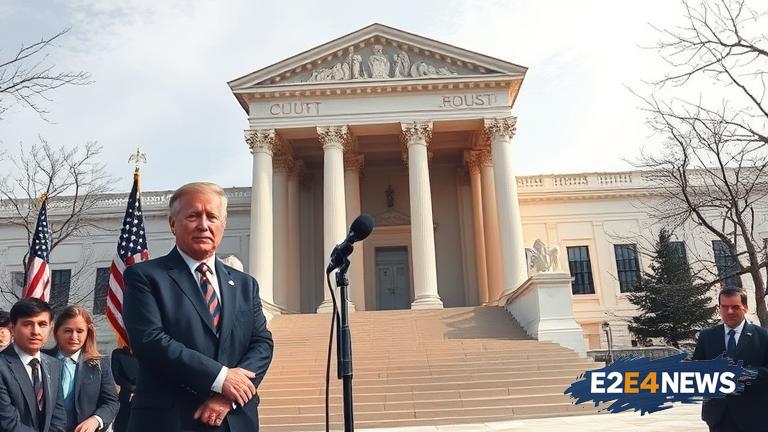In a recent decision, the Supreme Court has ruled that the Trump administration has the authority to fire certain employees within the Education Department. This decision has sparked controversy and debate, with many arguing that it undermines the independence of the department and its ability to effectively carry out its mission. The case centered around a specific provision of the Higher Education Act, which had previously been interpreted to limit the administration’s ability to terminate certain employees. However, the Supreme Court’s ruling has effectively overturned this interpretation, giving the administration greater control over personnel decisions within the department. The Trump administration had argued that the previous interpretation was overly restrictive and limited its ability to effectively manage the department. On the other hand, opponents of the decision argued that it would lead to a loss of expertise and institutional knowledge within the department, as well as undermine the department’s ability to make decisions based on evidence and research rather than political considerations. The decision has been seen as a significant victory for the Trump administration, which has been seeking to assert its authority over the executive branch. However, it has also been met with criticism from Democrats and other opponents, who argue that it represents a further erosion of the independence of the civil service. The ruling has also raised concerns about the potential for political interference in the department’s decision-making processes, as well as the potential for retaliation against employees who speak out against administration policies. The Education Department has a critical role to play in shaping the nation’s education policy, and the decision has significant implications for the future of education in the United States. The department is responsible for administering a wide range of programs and services, including student loan programs, grant programs, and initiatives aimed at improving educational outcomes for disadvantaged students. The decision has also sparked concerns about the potential for similar actions to be taken in other federal agencies, where employees may be subject to similar termination provisions. As the news of the decision broke, many took to social media to express their outrage and disappointment, with some calling for greater protections for federal employees and others arguing that the decision represented a significant overreach of executive authority. The decision is likely to have far-reaching consequences, not just for the Education Department, but for the entire federal workforce. It remains to be seen how the decision will be implemented, and what the ultimate impact will be on the department and its employees. The Supreme Court’s ruling has added fuel to the ongoing debate about the role of the executive branch in shaping federal policy, and the need for greater checks and balances on executive authority. The decision has also highlighted the importance of a independent and impartial civil service, and the need for greater protections for federal employees who speak out against administration policies. In the coming weeks and months, it is likely that there will be significant scrutiny of the Education Department and its employees, as well as the implementation of the Supreme Court’s ruling.
